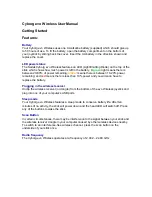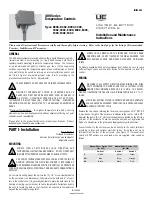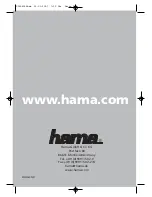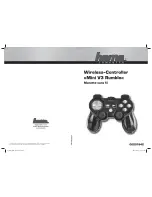
2
Getting Started
The RLC-ICM interface will operate on all Link Communications Inc. products that support the
Doug Hall RBI-1 interface. The RLC-ICM gets its input from the controller and then routes the
information to the requested band unit. To get the RLC-ICM operational you will need to:
make all of the hardware connections including building the cable to the controller, enter the
setup commands, then use the RLC-ICM with the controller commands for the Doug Hall RBI-1
interface.
Default Settings
To initialize the RLC-ICM back to factory presets you need to place a jumper between 2 pins on
a header connector. These pins are labeled 'T' and 'R'. When the jumper is placed across these 2
pins, and the interface goes through a power on reset cycle, all of the setup information
programmed into the ICM will be erased and overwritten with preset values. These preset
values cover the most widely used band modules.
There are 4 (10pin) ribbon cable connectors located on the ICM main board. These
connectors are labeled 1-4 indicating what module number the controller will control when
frequency and configuration information is entered. At initialization the module number is
configured with the following information.
Module 1:
- Frequency band: 140-160 mhz
- Offset when in plus or minus mode: 600 khz
- Frequency: 146.520 simplex
Module 2:
- Frequency band: 220 mhz
- Offset when in plus or minus mode: 1.600 khz
- Frequency: 224.000 simplex
Module 3:
- Frequency band: 430-440 mhz
- Offset when in plus or minus mode: 5.00 khz
- Frequency: 446.000 simplex
Module 4:
- Frequency band: not defined
- Offset when in plus or minus mode: not defined
- Frequency: not defined
When the user sends a frequency from the controller to the RLC-ICM the interface will
automatically determine what module to talk to from these definitions, or whatever you change
them to with the setup commands.
Summary of Contents for IC-900
Page 17: ...14 Schematic Drawings ...
Page 18: ...15 ...
Page 19: ...16 ...
Page 20: ...17 ...
Page 21: ...18 ...
Page 22: ...19 Board Layouts ...
Page 23: ...20 ...
Page 24: ...21 ...






































